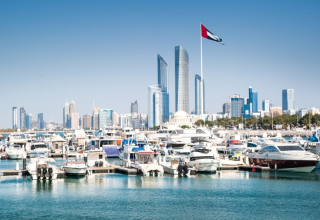
The price tag for protecting European consumers and businesses from skyrocketing energy bills has risen to about 800 billion euros, according to a report published on Monday, February 13. Researchers urged European nations to prioritize their expenditure to combat the energy problem.
Since September 2021, European Union nations have targeted or budgeted 681 billion euros for energy crisis spending, while the United Kingdom has allocated 103 billion euros and Norway has allocated 8.1 billion euros, according to a research by the think tank Bruegel.
The amount of 792 billion euros contrasts to Bruegel’s previous November estimate of 706 billion euros, as nations continue to confront the repercussions of Russia shutting off the majority of its gas supply to Europe in 2022.
Germany outspent all other nations by providing about 270 billion euros, a number that surpassed all others. Britain, Italy, and France ranked second, third, and fourth, respectively, while spending less than 150 billion euros. The majority of EU nations only spent a fraction of that amount.
Keep Reading
Luxembourg, Denmark, and Germany were the highest per capita spenders.
The nations’ expenditures on the energy crisis are now comparable to the EU’s 750-billion-euro COVID-19 recovery fund. To combat the epidemic, Brussels agreed in 2020 to assume collective debt and pass it on to the bloc’s 27 member states.
The report on energy spending comes as nations debate EU proposals to further relax state assistance regulations for green technology initiatives, as Europe looks to compete with U.S. and Chinese subsidies.
Some EU capitals are concerned that promoting greater state aid may destabilize the bloc’s internal market if these measures are implemented. Germany has been criticized for its enormous energy aid package, which much exceeds what other EU countries can pay.
Governments, according to Bruegel, have concentrated the majority of their assistance on non-targeted measures to reduce the retail price consumers pay for energy, such as value-added tax reduction on gasoline and price restrictions on retail electricity.
According to the think tank, this relationship must alter since governments are running out of fiscal space to sustain such expansive support.
“Instead of price-suppressing measures that are de facto fossil fuel subsidies, governments should promote more income-support policies aimed at the bottom two quintiles of the income distribution and critical sectors of the economy,” said Giovanni Sgaravatti, a research analyst.
Read More:- Commencing in 2023, Dubai hosts the World Government Summit



























